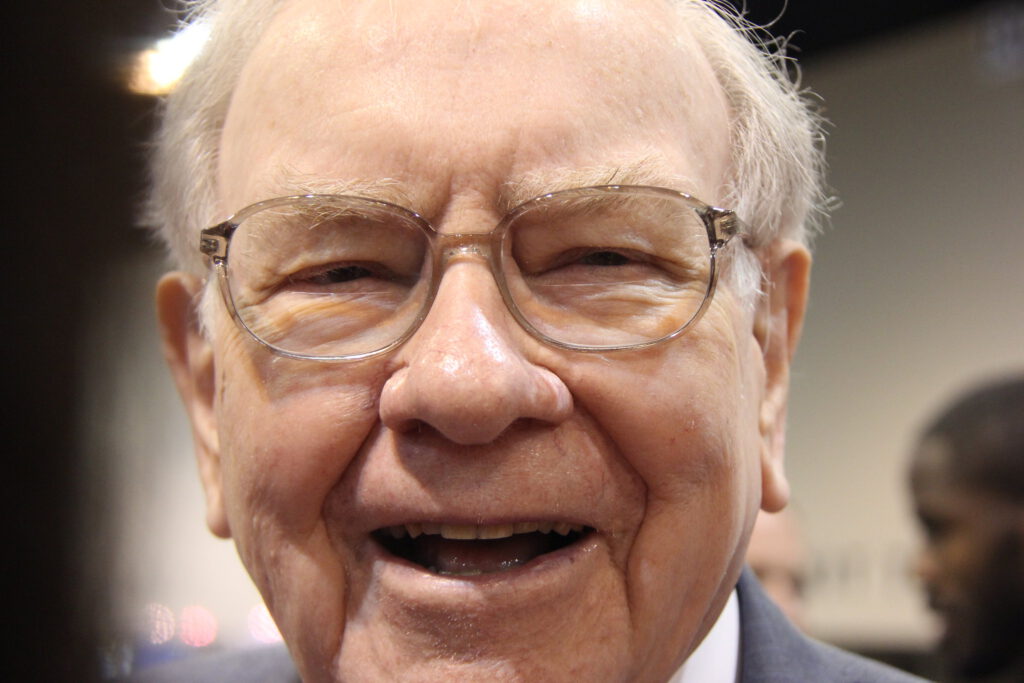Apple shares are Warren Buffett’s largest holding.
Warren Buffett is one of the most celebrated and studied investors in history. Since 1965, he has led the investment conglomerate Berkshire Hathaway and helped generate a total return of 4,384,748%.
It’s fair to say Buffett knows a thing or two about stock picking. His portfolio features financial services, energy and consumer goods companies. In contrast, one sector Buffett has long avoided is technology.
But in 2016, the Oracle of Omaha surprised the world by disclosing a huge investment in Apple (AAPL, 0.06%). Less than a decade later, the iPhone maker’s shares have become Buffett’s largest holding, worth about $135 billion and accounting for nearly 41% of his entire portfolio.
Let’s dig into why Buffett loves Apple stock so much and evaluate whether now is a good time for investors to accumulate shares.
Buffett’s investment philosophy is surprisingly simple
You don’t have to be good at picking individual stocks to emulate Buffett’s success — in fact, much of his investing philosophy revolves around exercising patience and discipline, rather than trying to find “the next big thing.”
Besides Apple, some of Buffett’s largest holdings include Coca-Cola, American Express, Occidental Petroleum, Bank of America, and Chevron. The first important thing to realize here is that Buffett is well diversified.
But more importantly, look at how long Buffett has owned some of these companies. For example, Buffett has owned shares in Coca-Cola since 1988. While Coca-Cola may be considered a mediocre business by many, Buffett has enjoyed significant profits over the decades thanks to Coca-Cola’s reliable, consistent growth and dividend program.
But Apple is a bit different: Buffett has owned Apple shares for less than a decade, and his holdings are already at an all-time high.
Obviously, Apple has seen a huge surge in its stock price in recent years, and with artificial intelligence (AI) all the rage in tech right now, investors may be seeing a generational opportunity in Apple.
Image credit: The Motley Fool.
Apple’s AI strategy revealed
Over the past few years, many big tech companies have made splashy moves in the AI space: Microsoft invested $10 billion in ChatGPT developer OpenAI, while Alphabet and Amazon each invested in Anthropic, an OpenAI competitor.
The main factor that unites these investments is that Microsoft, Amazon and Alphabet are in fierce competition with each other in the cloud computing space.
Unlike its peers, Apple has been suspiciously quiet about its AI ambitions, and the lack of an AI roadmap is unsettling, given that the company’s revenue has been declining for the past year or so.
But about a month ago at the Worldwide Developers Conference (WWDC), management finally gave investors a preview of the company’s long-awaited AI strategy: Apple Intelligence.
Aiming to bring AI-powered applications to the masses, Apple will partner with OpenAI to integrate ChatGPT into its suite of hardware products.
Apple’s WWDC took place from June 10 to June 14. And since June 10, Apple’s stock price has soared 16%.
Not surprisingly, many Wall Street analysts have also revised and increased their price targets on Apple shares over the past month.
Are premium valuations worth it?
As shown in the chart below, Apple’s price-to-earnings (P/E) and price-to-free cash flow (P/FCF) multiples are significantly higher than they were just a year ago: I find it hard to justify such premium multiples, given that Apple has done very little in terms of growth or innovation for quite some time.
AAPL price-to-earnings data from YCharts
On the surface, it looks like investors have been encouraged by the bullish sentiment around Apple Intelligence, and have bought quite a bit of the company’s stock. While it may be tempting to follow suit, buying on momentum is rarely a good strategy.
Another thing that makes Buffett a great investor is that he is a contrarian — he doesn’t follow the crowd and doesn’t chase lofty valuations.
While Apple Intelligence is an interesting development, the company has yet to show any concrete results, and the first Apple Intelligence product suite isn’t scheduled to be released until the fall.
From my perspective, investors are increasingly jumping on the Apple Intelligence story, and the current big buying activity seems rooted in emotional hype rather than careful logic.
While a rise in Apple stock would be good for Berkshire and Buffett, I don’t think it’s justified at this point. If the company starts to see a recovery in sales and Apple Intelligence starts to become a big growth driver, perhaps later this year, it might be a good idea to pick up shares. But for now, I wouldn’t initiate a position in Apple stock or add to an existing one.
Bank of America is an advertising partner of The Ascent, a Motley Fool company. Suzanne Frey, an executive at Alphabet, is a member of The Motley Fool’s board of directors. American Express is an advertising partner of The Ascent, a Motley Fool company. John Mackey, former CEO of Amazon subsidiary Whole Foods Market, is a member of The Motley Fool’s board of directors. Adam Spatacco owns shares of Alphabet, Amazon, Apple, and Microsoft. The Motley Fool owns shares of and recommends Alphabet, Amazon, Apple, Bank of America, Berkshire Hathaway, Chevron, and Microsoft. The Motley Fool recommends Occidental Petroleum and recommends the following options: long January 2026 $395 calls on Microsoft and short January 2026 $405 calls on Microsoft. The Motley Fool has a disclosure policy.

